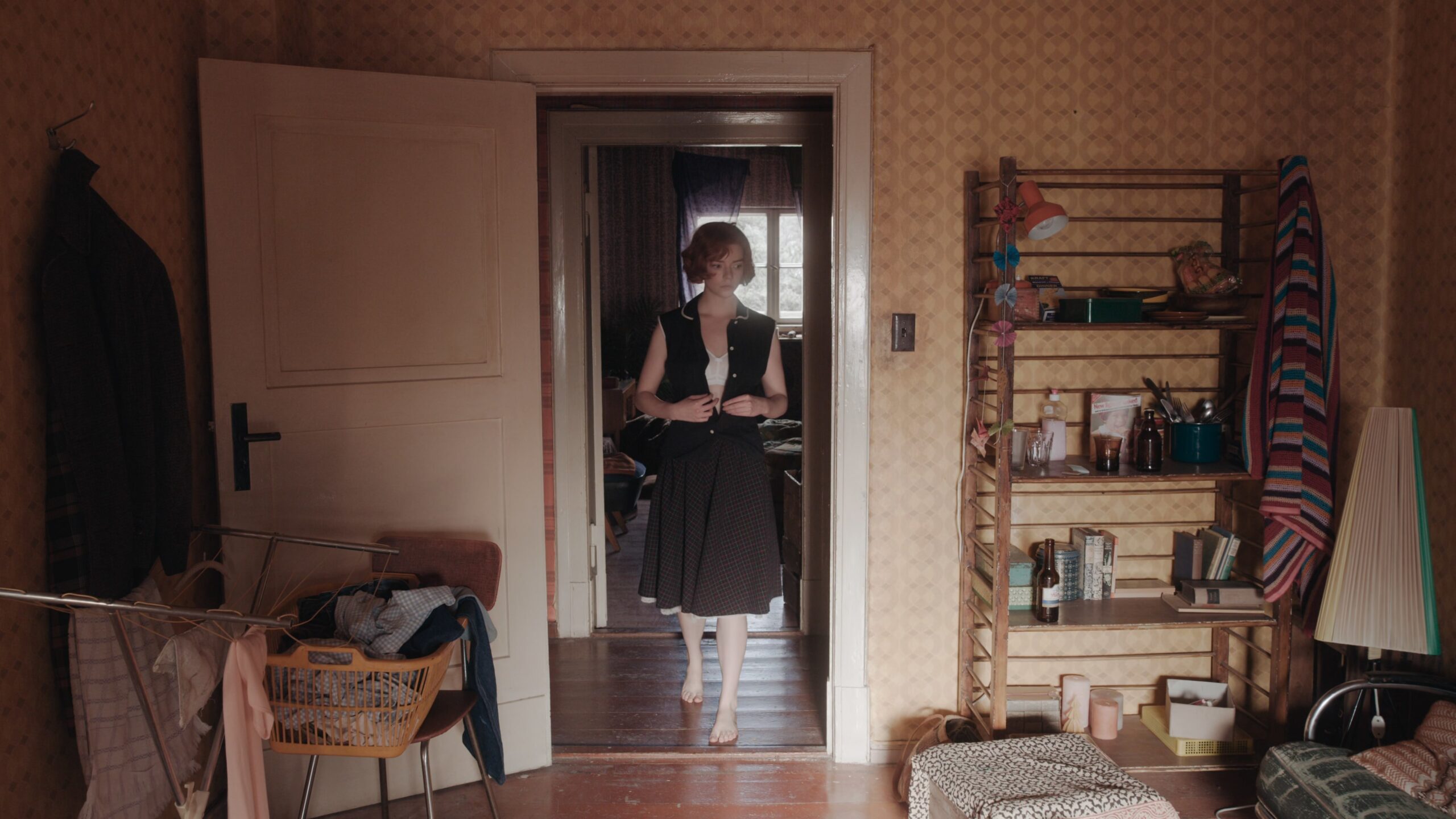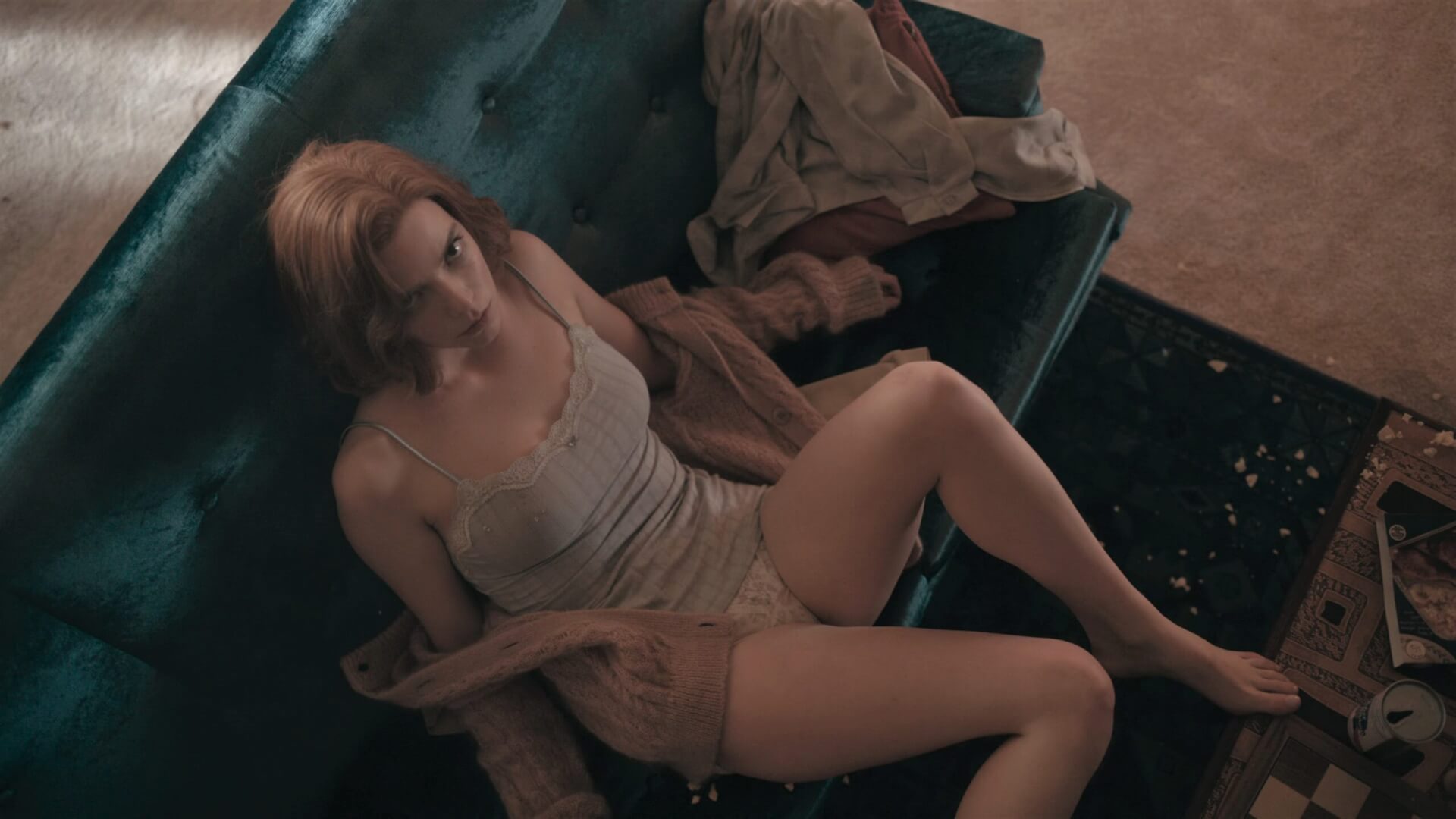THE QUEEN’S GAMBIT. Excellent Taylor-Joy in a show that will captivate you for hours

One could write extensively about the phenomenon of Netflix, especially the tremendous success of its streaming strategy. Most of the platform’s original productions do not rise above mediocrity, yet they still attract masses of viewers (the success of the series Emily in Paris is a case in point). Netflix ensures that the buzz around it never dies down by regularly providing new content to its subscribers, although, unfortunately, valuable productions are hard to find among them. Then, one October day in 2020, The Queen’s Gambit appeared on the platform – one of Netflix’s most interesting offerings that year. It is likely the best production about chess in the history of cinematography.
This success is partly due to the excellent source material – Walter Tevis’s book of the same title. His prose has been successfully adapted multiple times. In 1961, Robert Rossen directed the adaptation of The Hustler; in 1976, Nicolas Roeg adapted The Man Who Fell to Earth; and in 1986, Martin Scorsese’s adaptation of The Color of Money was nominated for Oscars and Golden Globes. There were several attempts to create a film adaptation of The Queen’s Gambit, but it wasn’t until 2019 that Netflix commissioned the production of the series. The series was created by Scott Frank (screenwriter of Minority Report, The Interpreter, and Logan: Wolverine), with its main star being Anya Taylor-Joy, who had garnered audience and critic attention at that time with her excellent performances in Robert Eggers’s horror film The Witch: A New-England Folktale and M. Night Shyamalan’s thriller Split.

Taylor-Joy plays the role of the main character, Beth Harmon, who, as an eight-year-old, miraculously survives a tragic car accident that kills her mother. Since her father refuses to take care of her, young Beth (played by the younger Isla Johnston) ends up in a Catholic orphanage. Although the institution is far from the dramatic depictions often shown in cinema, the children are given “vitamins” daily, which include psychotropic drugs “for calming.” Young Beth quickly becomes addicted to them and soon to chess as well – a game she secretly learns in the basement with the janitor, Mr. Shaibel (Bill Camp). The man quickly realizes that the unassuming girl has an extraordinary talent. It is in the orphanage’s basement that Beth’s journey to chess mastery begins, a journey we follow over seven episodes.
Although the series seems like it might be a typical sports biopic or a rags-to-riches story after the first episode, it is instead a successful amalgamation of a coming-of-age film with a period drama set in the 50s and 60s and an emotional, sensitive drama. While exciting (sic!) chess matches take up a significant portion of screen time (and I assure you, they won’t bore even a novice!), Beth’s life journey, paralleling her path to chess mastery, her transformation from a child into a confident young woman, her struggles with a difficult childhood, addiction to pills, then alcohol, and the relationships she builds with people around her become the crux of the entire story. However, it’s hard not to notice that The Queen’s Gambit sometimes loses its pace, and the series’ action occasionally drags.

The excellent Anya Taylor-Joy is joined on screen by Thomas Brodie-Sangster, who will pleasantly surprise anyone who last saw him in Love Actually, where he played the adorable son of Liam Neeson. Marielle Heller also impresses as Alma Wheatley, Beth’s adoptive mother. Heller, known as the director of recent festival hits Can You Ever Forgive Me? and A Beautiful Day in the Neighborhood, plays the role of a typical American housewife of the 50s and 60s – an unemployed woman ignored by her husband, in depression, and addicted to drugs and alcohol. Although the adoption of Beth was not a noble-hearted act for the Wheatleys, a bond forms between the girl and her adoptive mother. Thanks to her successes, the underage Beth begins to travel to chess tournaments across the country, accompanied by her mother, for whom escaping from her oppressive existence becomes a salvation.
Polish actor Marcin Dorociński, playing the role of a Russian chess grandmaster and Beth’s main opponent, though distinctive in his role as a tough Russian, is reduced to a symbol of the outdated, male-dominated world that the heroine storms and conquers. This makes The Queen’s Gambit a profoundly feminist story (after all, the series is set in the 60s). On her path to chess mastery, Beth repeatedly overcomes sexism, disregard, and exclusion due to her gender with her outstanding skills. The male-female world in The Queen’s Gambit is not, however, black and white – the heroine meets many fantastic and supportive men along the way, though it’s hard to shake the impression that if this were not a fictional story but based on true events, Beth’s path to chess mastery would not have been so easy. But ultimately, that’s what The Queen’s Gambit is – a fairy-tale fantasy about a talented girl who overcomes life’s difficulties to reach the heights of chess mastery. A fairy-tale fantasy that will captivate you for hours.

